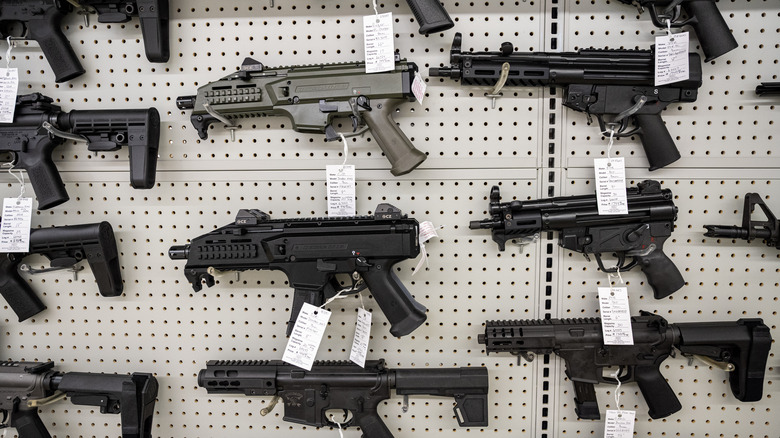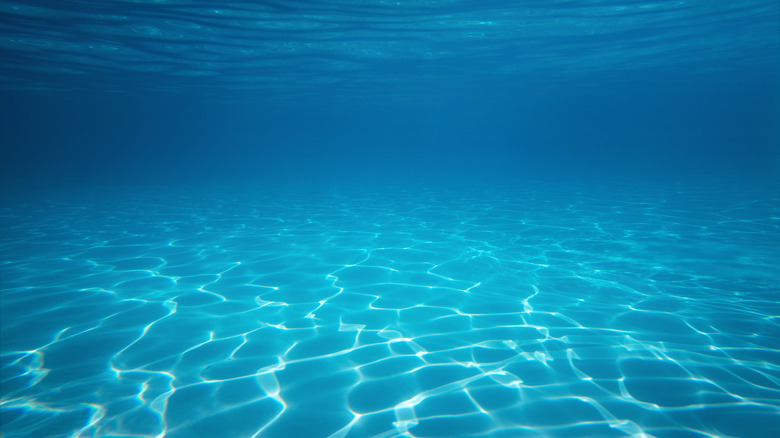Here's What Happens When You Shoot A Gun Underwater
Guns are perhaps more misunderstood than any other machine. Unlike cars, a comparatively smaller number of people own and use guns, so their use and function remains something of a mystery to many. This problem is amplified by the fact that the TV and movie industries have propagated certain myths about them, glamorized their use, and yet often fail to actually explain how they work. More than one episode of the TV series "Mythbusters" has been devoted to confirming or debunking gun myths, and spoiler alert, most of those myths have been busted.
One group of misunderstandings about guns concerns their function underwater. Specifically, they stem from two questions: Will the gun even work (that is, fire a bullet) when completely submerged under the water? And will the bullet fired from the gun still be lethal? As it turns out, a Norwegian physicist has been putting his life on the line to address both of those questions.
Guns will work under water, to a point
As Business Insider reports, Norwegian physicist Andrew Wahl put devoted a significant amount of time to learning and teaching about the physics and chemistry of gun behavior underwater. Indeed, he's so confident that he's been standing in swimming pools, lethal weapons pointed at his abdomen from a few feet away, and pulling the trigger. That he lived to repeat the experiment should be proof enough of the result of his experiments: that guns are not lethal underwater.
Almost all modern guns will fire just fine underwater, and that's because, as The Daily Mail explains, everything needed to cause the explosion to propel the bullet out of the barrel is present in the cartridge, including an oxidizer. The presence or absence of water makes absolutely no difference. However, once the bullet is out of the barrel, the physics related to friction and drag take over, effectively slowing the bullet to the point that it only travels a couple of feet from the barrel, before falling harmlessly.

